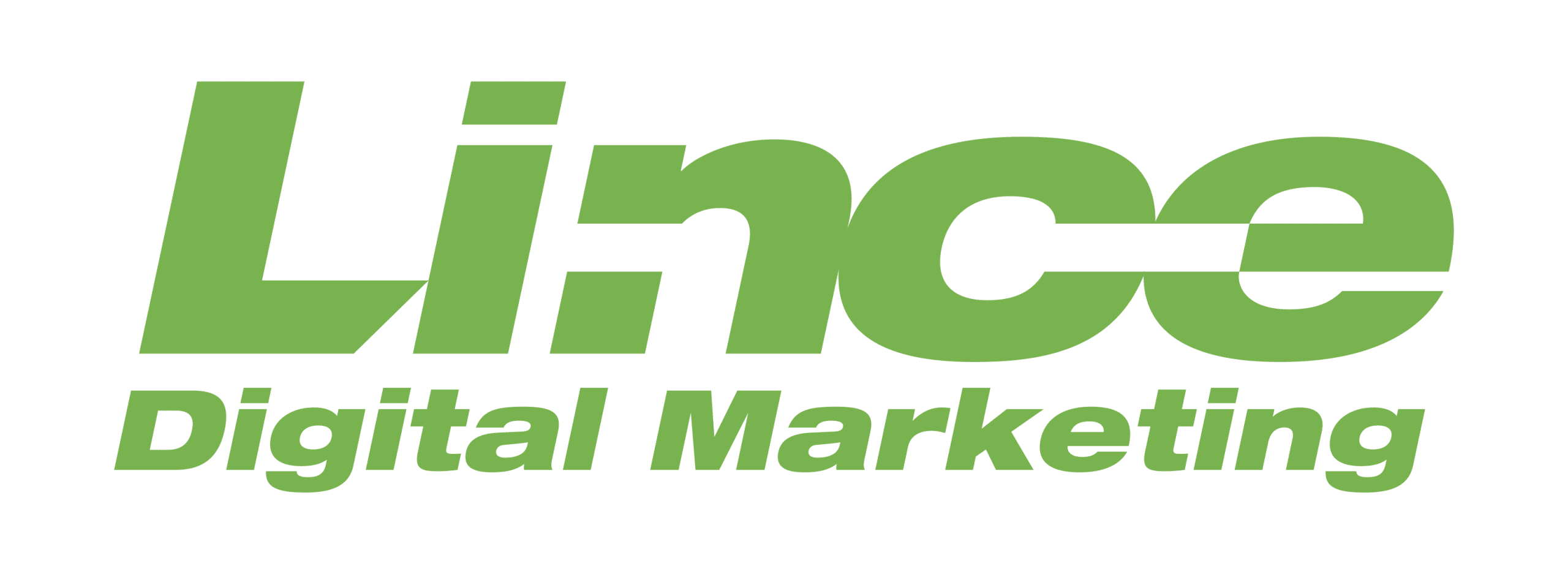Artificial Intelligence (AI) has swiftly emerged as a game-changer in the digital world, revolutionizing various industries, including marketing. In this ever-evolving digital landscape, businesses constantly seek innovative ways to stay ahead of the curve and connect with their target audience. And that’s where AI steps in, offering various benefits and capabilities that have transformed how we approach digital marketing. From personalized customer experiences to enhanced efficiency and automation, AI is paving the way for a new era of marketing strategies. So, buckle up as we delve into how AI is reshaping the future of digital marketing!
AI in Digital Marketing: Benefits and Capabilities
Artificial Intelligence (AI) has revolutionized the way digital marketing operates, providing businesses with numerous benefits and capabilities that were once unimaginable. With its ability to quickly analyze vast amounts of data, AI enables marketers to make informed decisions and deliver personalized experiences to their target audience.
One of the key benefits of AI in digital marketing is its capability for personalization and targeting. By leveraging AI algorithms, marketers can create highly targeted campaigns tailored to individual preferences and behaviors. This level of personalization not only enhances customer engagement but also increases conversion rates as customers feel understood and valued.
Furthermore, AI enhances customer experience by enabling real-time interactions. Businesses can provide instant customer support any time of the day or night through chatbots powered by natural language processing. These virtual assistants can understand complex queries, resolve issues promptly, and even make product recommendations based on user preferences.
Automation is another significant capability brought about by AI in digital marketing. With automated tools driven by machine learning algorithms, tasks such as email automation, content creation, ad optimization, and lead nurturing can be streamlined efficiently. This frees up valuable time for marketers to focus on strategy development rather than mundane tasks.
AI also empowers marketers with predictive analytics capabilities. Businesses can gain insights into future trends and consumer behavior patterns by analyzing historical data patterns using machine learning algorithms. This enables them to anticipate customer needs before they arise and tailor their marketing efforts accordingly.
Despite these incredible benefits provided by AI in digital marketing, some challenges exist, too. One concern is privacy issues since collecting large amounts of user data requires responsible handling to ensure compliance with regulations like GDPR.
Additionally, due diligence must be exercised when implementing AI systems to avoid biases or inaccuracies that may negatively impact campaign performance or alienate certain target audience segments.
Acknowledging these concerns will help organizations navigate potential pitfalls while reaping the rewards offered by AI in digital marketing.
Personalization and Targeting with AI
One of the most powerful applications of artificial intelligence in digital marketing is its ability to personalize and target content for individual users. AI algorithms can analyze vast amounts of data about user behavior, preferences, and demographics to deliver highly tailored experiences.
With AI-powered personalization, marketers can create dynamic content that adapts to users’ needs and interests. Whether serving personalized product recommendations based on past purchases or delivering targeted ads based on browsing history, AI enables marketers to engage customers on a one-to-one level.
AI also helps marketers identify potential customers by analyzing their online behavior patterns. AI algorithms can accurately predict their preferences and intent by understanding what individuals are searching for, clicking on, or engaging with online. This allows marketers to target their campaigns more effectively and reach the right audience at the right time.
Furthermore, AI enhances targeting capabilities by enabling real-time optimization of advertising campaigns. Machine learning algorithms continuously learn from user interactions and adjust ad placements accordingly. As a result, advertisers can maximize their ROI by showing ads only to those most likely to convert.
In addition to personalizing content delivery and targeting advertisements, AI can also assist in optimizing website design for better customer engagement. Using data analysis techniques such as heatmaps and click tracking, AI algorithms can identify areas where visitors are getting stuck or losing interest. Marketers can then make informed decisions about improving the user experience.
By leveraging the power of artificial intelligence in personalization and targeting efforts, digital marketers have an unprecedented opportunity to connect with consumers in meaningful ways. Delivering relevant content at scale improves customer satisfaction, drives higher conversion rates, and ultimately boosts business growth.
As technology advances rapidly in this field, we can expect even more sophisticated applications of AI in personalization strategies that will redefine how brands interact with their audiences online.
Enhancing Customer Experience Through AI
Artificial intelligence (AI) is revolutionizing how businesses interact with their customers, thanks to its ability to analyze vast amounts of data and provide personalized experiences. By harnessing the power of AI in digital marketing, companies can create highly tailored customer journeys that foster deeper connections and drive meaningful engagement.
One of the key ways AI enhances customer experience is through personalization. With AI algorithms constantly learning from user behavior and preferences, brands can deliver targeted content recommendations, product suggestions, and offers based on individual needs. This personalization level increases customer satisfaction and boosts conversion rates by providing relevant information at the right time.
Another aspect where AI excels in enhancing customer experience is through chatbots and virtual assistants. These intelligent systems use natural language processing to effectively understand and respond to customer inquiries. They provide instant support around the clock, ensuring quick resolutions to common queries while freeing human resources for more complex issues.
Furthermore, AI-powered analytics tools enable businesses to gain valuable insights into consumer behaviors, preferences, and patterns over time. By analyzing this data in real-time, marketers can identify trends or anticipate future needs before they arise. This proactive approach allows companies to offer timely solutions or personalized recommendations that resonate with their customers.
Additionally, AI-driven sentiment analysis enables brands to gauge customer emotions by monitoring social media conversations and feedback channels. Understanding how customers feel about their products or services helps companies address concerns promptly while capitalizing on positive sentiments for brand advocacy.
In conclusion,
Integrating artificial intelligence into digital marketing has transformed how businesses enhance customer experiences across various touchpoints. From personalized recommendations powered by machine learning algorithms to responsive chatbots providing instant support round-the-clock – these advancements streamline processes while increasing overall consumer satisfaction.
Automation and Efficiency in Marketing Strategies with AI
Artificial Intelligence (AI) has brought a wave of automation and efficiency to various industries, and digital marketing is no exception. With the power of AI, marketers can now streamline their strategies and achieve better results in less time.
One significant advantage of using AI in marketing is its ability to automate repetitive tasks. From data analysis to content creation, AI algorithms can handle these mundane tasks efficiently, freeing up valuable time for marketers to focus on more strategic activities. This increases productivity and ensures that marketing efforts are targeted toward areas that require human creativity and critical thinking.
Moreover, AI-powered tools enable marketers to leverage large volumes of data effectively. By analyzing customer behavior patterns, preferences, and demographics, AI algorithms can generate insights that help businesses understand their target audience better. This information allows marketers to create highly personalized campaigns tailored to customers’ needs and interests.
Furthermore, AI enhances efficiency by optimizing campaign performance through real-time monitoring and optimization. Machine learning algorithms continually analyze campaign data and make automated adjustments based on user engagement metrics such as click-through rates or conversions. This iterative process helps drive higher ROI by quickly identifying what works best for each audience segment.
Chatbots powered by natural language processing (NLP) have become increasingly popular in customer service interactions. These virtual assistants use AI technology to engage with customers promptly, providing personalized recommendations or resolving queries 24/7. Not only does this improve overall customer satisfaction, but it also frees up human resources for more complex issues requiring personal attention.
However, marketers must rely on something other than Athoonly or Oversightwithy. Human action is essential to ensure ethical considerations are met, and the technology aligns with business goals. Furthermore, the accuracy of machine learning models relies heavily on quality training data and ongoing supervision from experienced professionals
to avoid biased outcomes or misinterpretation of results.
In conclusion,
AI has revolutionized digital marketing by providing automation and efficiency in various aspects.
Challenges and Concerns of Using AI in Digital Marketing
While artificial intelligence (AI) has undeniably revolutionized the world of digital marketing, it is not without its challenges and concerns. One of the main concerns is the potential loss of jobs as AI takes over certain tasks traditionally performed by humans. He questions how businesses can balance utilizing AI efficiently while maintaining a human touch.
Another challenge lies in ensuring that AI algorithms are unbiased and fair. Since these algorithms learn from data, there is always a risk of perpetuating existing biases or discrimination if not carefully monitored. It becomes crucial to regularly audit and optimize AI systems to ensure they align with ethical standards.
Privacy is another significant concern regarding using AI in digital marketing. With access to vast amounts of user data, there is always the risk of misuse or unauthorized access. Businesses must prioritize implementing robust security measures and transparent data handling practices to protect user privacy.
Furthermore, there are limitations to what AI can achieve in terms of creativity and emotional understanding. While algorithms can analyze patterns and make predictions based on historical data, they may need help interpreting nuances or adapting quickly to rapidly changing consumer behavior.
Integrating AI into existing marketing strategies requires careful planning and investment in infrastructure and training. Businesses need experts who understand both the technology behind AI and the intricacies of effective marketing practices.
While there are challenges associated with using AI in digital marketing, addressing these concerns through proactive measures can help businesses harness their full potential while minimizing risks.
The Future of AI in Digital Marketing
As we look ahead, it’s clear that the future of digital marketing lies in the hands of artificial intelligence. AI has already proven to be a game-changer in various industries, and its potential impact on digital marketing is no exception. With advancements in technology and data analysis, AI is set to revolutionize how businesses reach their target audience.
One area where AI will play a crucial role is predictive analytics. By analyzing vast amounts of data, AI algorithms can accurately anticipate customer behavior and preferences. This enables marketers to tailor their strategies accordingly and deliver personalized content that resonates with individual consumers.
Furthermore, chatbots powered by AI are becoming increasingly sophisticated. They can engage with customers quickly, providing instant support and assistance throughout the buyer journey. This enhances customer experience and frees up valuable time for human agents to focus on more complex tasks.
In addition, expect to see an increase in voice search optimization as more people rely on virtual assistants like Siri or Alexa for information. Marketers must optimize their content for voice queries by understanding natural language processing and leveraging conversational keywords.
Another exciting development is the integration of AI into social media marketing strategies. With intelligent algorithms at work behind the scenes, businesses can analyze user behavior patterns and create highly targeted ads that generate maximum engagement and conversions.
However, it’s important to note that implementing AI also comes with challenges. Privacy concerns surrounding data security must be addressed thoroughly to ensure consumer trust remains intact. Additionally, there may be ethical considerations when using automated systems for decision-making processes.
In conclusion (not conclusive), while there are challenges ahead, the future looks bright for artificial intelligence in digital marketing. By harnessing the power of machine learning algorithms and automation tools, businesses can unlock new opportunities for personalization, efficiency, and improved customer experiences. With constant advancements being made, it’s safe (never use “to say”) to say that AI will continue revolutionizing the digital marketing landscape.
Conclusion
In today’s fast-paced digital world, integrating Artificial Intelligence (AI) in digital marketing has revolutionized how businesses connect with their target audience. Through AI-powered tools and algorithms, marketers can personalize their campaigns, enhance customer experiences, automate tasks, and improve overall efficiency.
The benefits and capabilities of AI in digital marketing are undeniable. From personalized targeting to predictive analytics, AI enables marketers to deliver highly relevant content to each consumer, improving conversion rates and higher ROI. With AI-driven chatbots and virtual assistants becoming more advanced, brands can provide instant customer support round-the-clock.
However, it is important to acknowledge the challenges and concerns surrounding the use of AI in digital marketing. Privacy issues arise when collecting vast amounts of personal data for customization purposes. Marketers must prioritize transparency and consumer consent to build trust while leveraging AI technologies.
Looking ahead into the future of AI in digital marketing, we can expect even greater advancements as technology continues to evolve rapidly. Machine learning algorithms will become smarter at understanding consumer behavior patterns and predicting their needs accurately. Virtual reality (VR) and augmented reality (AR) powered by AI will take experiential marketing to new heights.
As businesses embrace Artificial Intelligence as a core component of their digital strategies, they gain a competitive edge by staying ahead of market trends and effectively meeting evolving consumer expectations.
In conclusion,
Artificial Intelligence is undoubtedly revolutionizing the field of digital marketing by enabling personalized targeting,
enhancing customer experiences, automating tasks, and improving overall efficiency. Though challenges exist concerning privacy, the future holds immense potential for further advancements.














